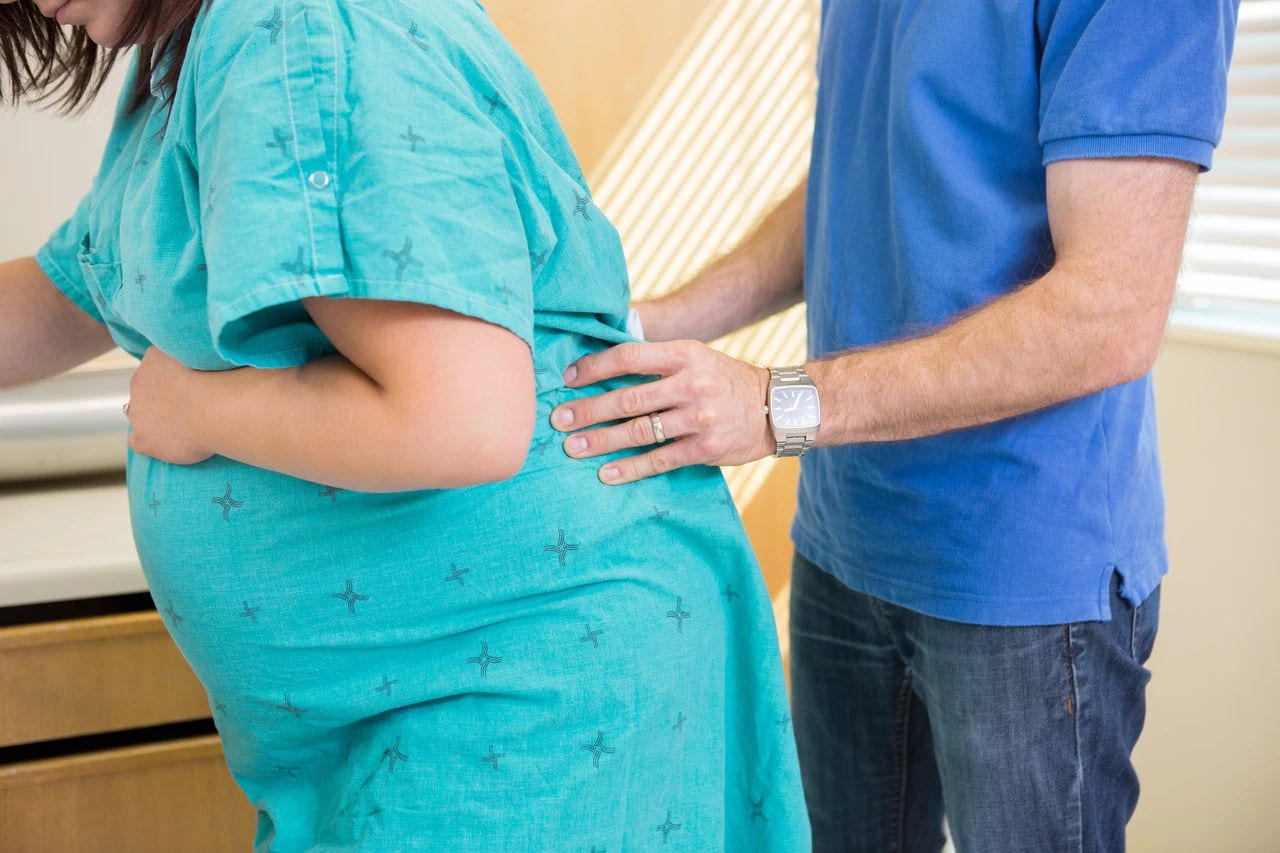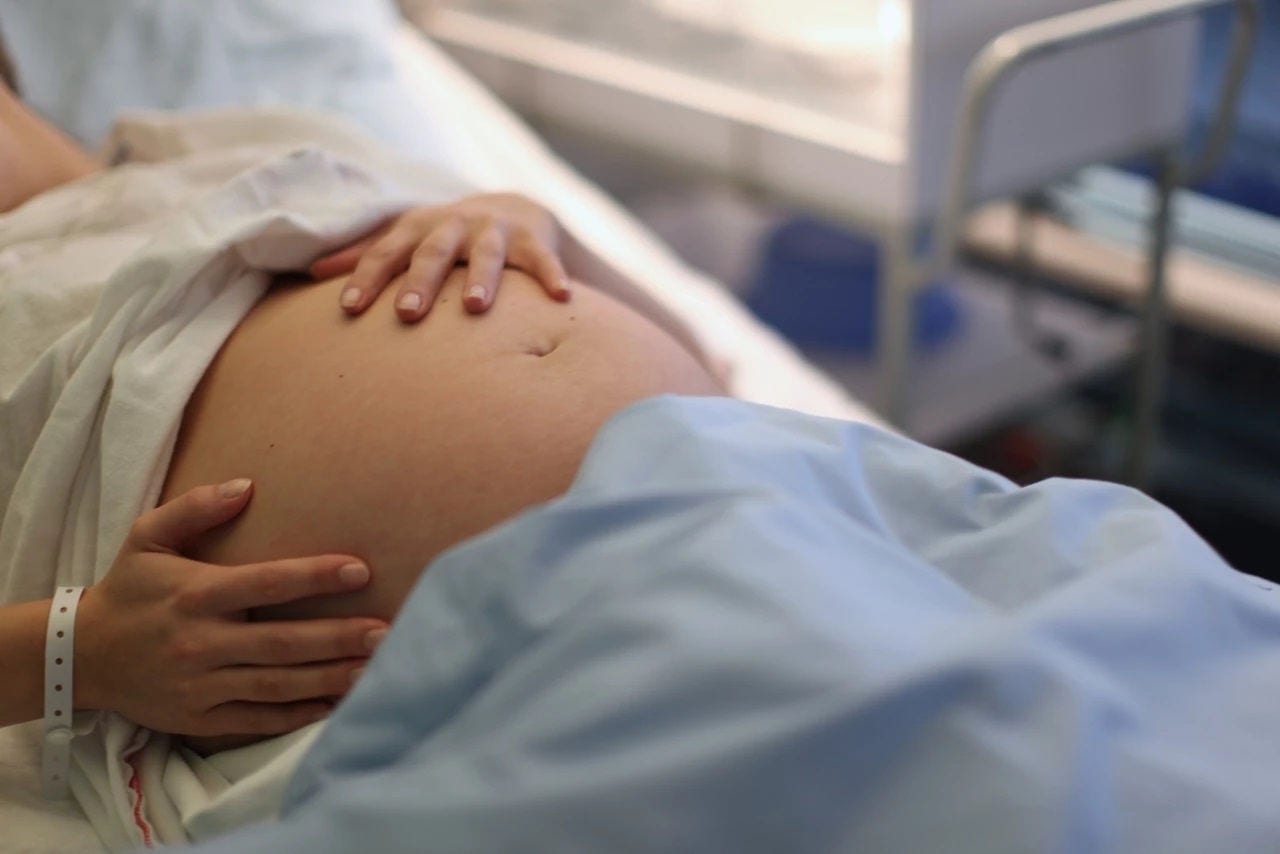Although your pregnancy is filled with many wonderful moments, you’ll soon realise it’s a bit of an emotional and physical rollercoaster! It’s a beautiful experience, but occasionally the baby growing inside your belly can create a few very common and perfectly normal side effects. One of those side effects is pregnancy discharge. In fact, one of the earliest signs of being pregnant is an increase in vaginal discharge, and this will continue throughout your pregnancy. You are likely to have more vaginal discharge when you are pregnant, but don’t worry, this is your body’s way of preventing infections from travelling to your baby.
Pregnancy discharge
Spotting or bleeding in pregnancy
Bleeding or spotting in early pregnancy can be very worrying and cause considerable stress for mums-to-be, but it doesn’t necessarily mean your pregnancy is at risk. Light bleeding, or spotting, is very common, especially during the early stages of your pregnancy. Usually, pregnancy spotting is no cause for alarm, but if you are experiencing any bleeding when you're pregnant, you should give your doctor a call. They won’t mind hearing from you!
What is pregnancy spotting?
Spotting is light bleeding from the vagina, similar to - but lighter than - a period. In all women, pregnant or otherwise, healthy discharge from the vagina is usually thin, clear or milky white, and shouldn't smell unpleasant.
Whilst it’s not exactly normal, light bleeding or spotting during pregnancy (particularly during the first three months) is fairly common. Usually it turns out to be caused by something minor, or is ‘just one of those things’. Some mums do experience light spotting throughout their pregnancy and their baby is fine. It’s really important you monitor any pregnancy discharge, and keep your GP updated if you notice any bleeding during your pregnancy. If your discharge changes from a white or clear colour, causes any symptoms (like itching or burning) or has an unpleasant smell, get in touch with your GP.
Other causes of bleeding in pregnancy
Other common causes of blood loss in early pregnancy are:
Implantation bleeding – this is a small amount of spotting or bleeding, like a short, light period, that occurs very early in your pregnancy - about 10 to 14 days after fertilisation. It happens when the fertilised egg attaches to the lining of your uterus. Some women do not realise they are pregnant, because this spotting is easily confused with a light period. Usually the bleeding in early pregnancy is very light and will last from a few hours to a few days.
Cervical changes – when you’re pregnant, there’s an increase in the blood supply and blood flow to your cervix. Your body is adapting to having a baby growing inside your tummy. This means you may experience light spotting after contact with the area, such as after sex or a pelvic examination.
Cervical infections – some cervical infections may also cause spotting in early pregnancy.
Miscarriage – bleeding in the early stages of pregnancy can sometimes be a sign of miscarriage. Miscarriage most occur often during the first 12 weeks. Although it’s perfectly natural to be alarmed and particularly nervous when you notice spotting during early pregnancy, remember that bleeding doesn’t necessarily mean you’re having a miscarriage.

Get it checked out
It’s really important to contact your doctor immediately if you experience any bleeding or spotting during your pregnancy. They are there to help you, so never be afraid to give them a quick ring. You may be referred for an early scan to try to identify the cause of the bleeding, but in many cases the cause of early spotting is never found and the pregnancy results in the birth of a healthy baby.
Increased discharge during pregnancy
If you’ve noticed extra discharge during your pregnancy, please don’t worry – it’s completely normal and lots of expectant mums-to-be experience the same thing. This discharge is often thin, white and non-irritating. You may notice it gets heavier towards your due date, which is a good sign that your little one is on the way. If you are at all unsure or if you think your waters have broken, it’s important that you contact your maternity unit.
Sometimes discharge can be a sign of an infection or thrush, especially if there’s an itching or burning sensation, too. If that’s the cause, the discharge will tend to be thick whitish possibly itchy. The first thing to do is call your doctor, who will be able to check and help you treat it.
Coping with a heavier discharge
Discharge during pregnancy is more often an annoyance rather than anything serious. If you are experiencing it more than normal, here are a few helpful tips to help you cope with heavier pregnancy discharge:
- If you feel it’s heavy or it makes your underwear uncomfortable, use sanitary pads to absorb it (you should not use tampons).
- Wash regularly with warm water but avoid perfumed soaps, which can aggravate any infection. Remember, your body is currently changing to accommodate the baby that is growing inside your tummy. It’s important to keep clean of course, but much of the natural bacteria forming inside you and your vagina is good bacteria. They are designed to protect your little one and help them grow, so be attentive but not aggressive when cleaning.
- Wear light, cotton underwear.
Have a question about spotting, bleeding and discharge during pregnancy?
If you'd like to know more about spotting, bleeding and discharge during pregnancy, why not give one of our friendly experts a call on 0800 977 8880. Or, ask us a question online, instantly, using Live Chat Monday to Friday, 8am - 8pm.
More from pregnancy
Pregnancy topics
Any more questions?
Our specialist baby advisors and experienced mums are here to talk and ready to help whenever you need them.
Ask us a question (8am - 8pm Mon-Fri, 10am - 5pm Weekends)
Email us
Send us an email (8am-8pm Mon-Fri, 10am-5pm Sat)
Call Us
Call us on 1800 570 570 (8am-8pm Mon-Fri, 10-5pm Sat)
FAQs
For all the latest information













